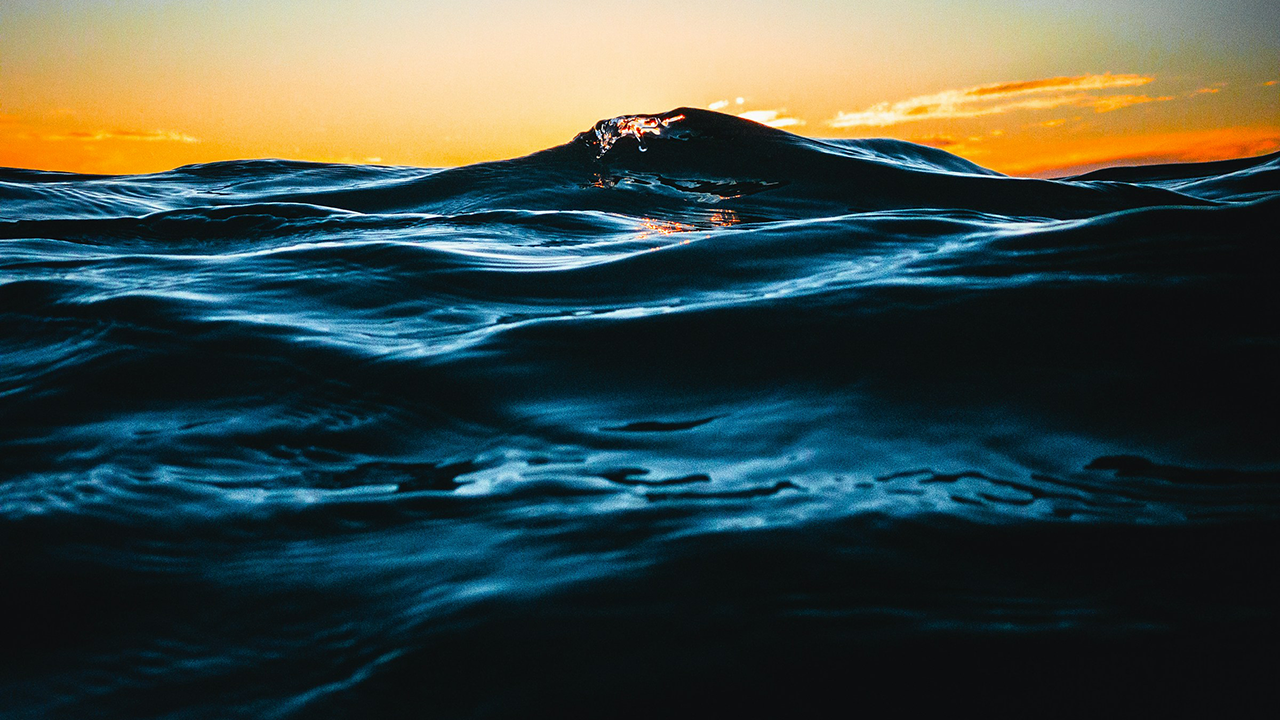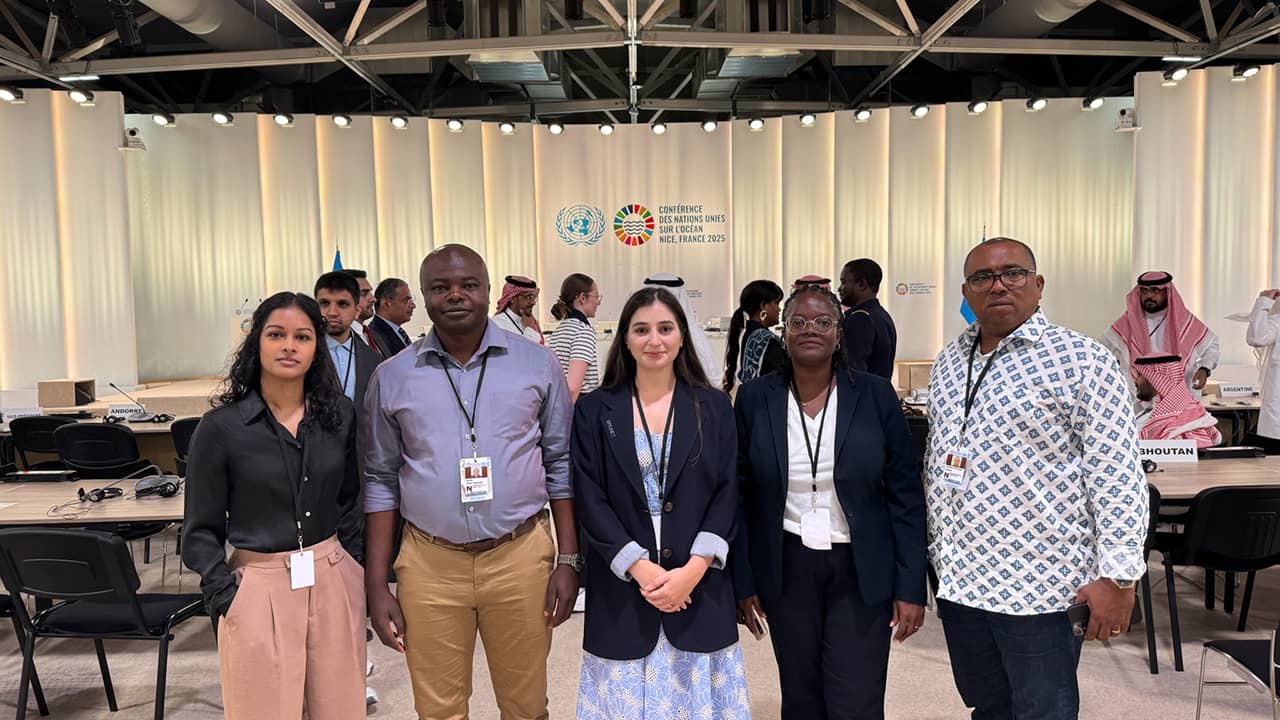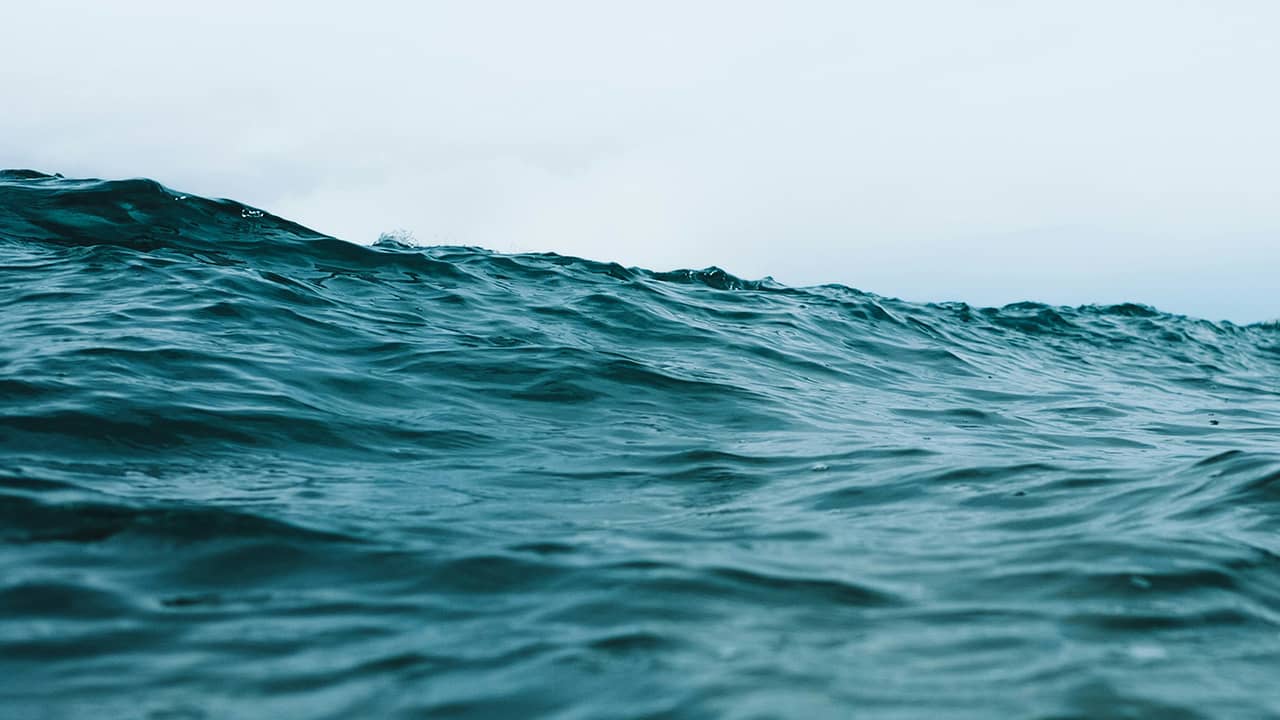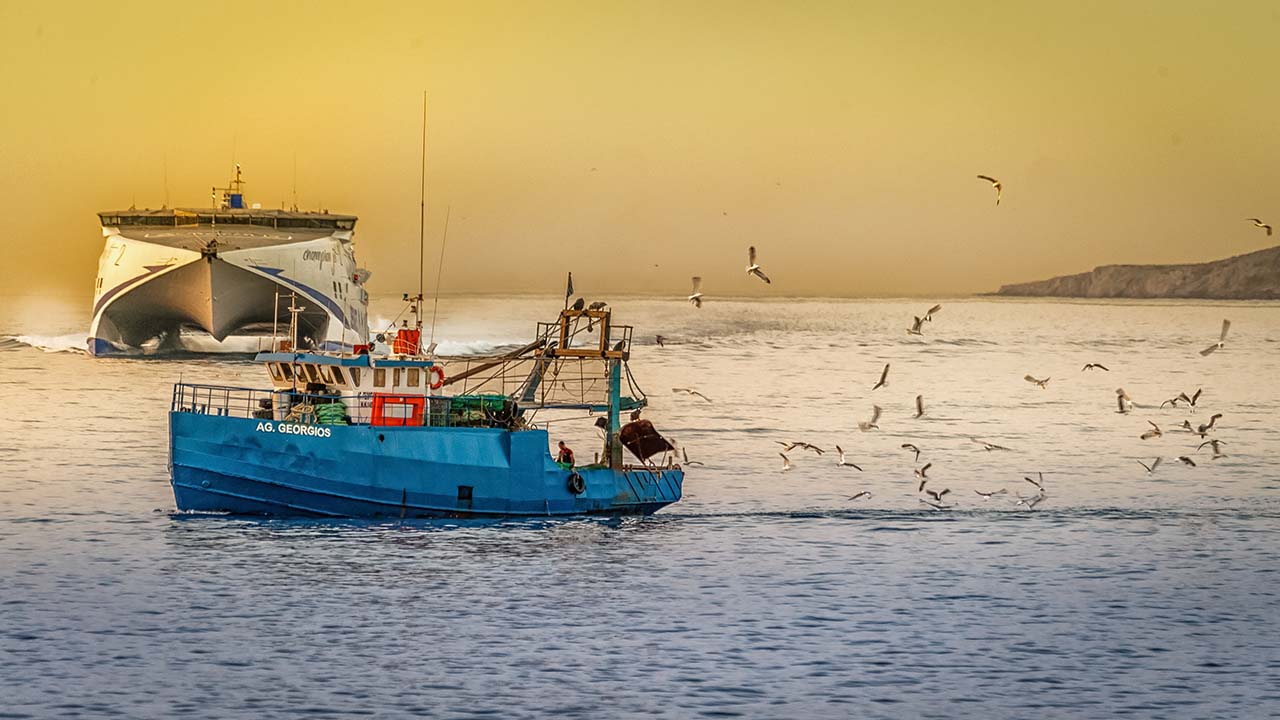
On 20 April and 28 May 2023, parliamentarians in Mozambique led discussions on the role of parliamentarians in increasing resilience within Mozambique’s small-scale fisheries.
On 20 April, in partnership with the Environmental Law Institute (ELI), the PGA Mozambique National Group convened a virtual National Group Meeting on Increasing Sustainability in Small-Scale Fisheries. This meeting brought parliamentarians from the National Assembly of Mozambique together with the Ministry of Sea, Inland Waters and Fisheries, experts, and civil society representatives to reflect on opportunities to support the sustainable development of small-scale fisheries in Mozambique.
Chairing the meeting, Dep. António Niquice, Chair of the Planning and Budget Commission of the National Assembly of Mozambique, PGA Board Member and PGA Oceans Campaign Convenor, underscored the importance of this area of work given Mozambique's extensive coastline and the country’s reliance on fishing for both food and economic security.
As the Keynote Speaker of the meeting, Minister Lídia Cardoso, Ministry of Sea, Inland Waters and Fisheries, stressed the particular impacts of the climate crisis in the country, noting the resulting devastation of ecosystems and livelihoods within artisanal fisheries. Highlighting the pertinence of the session and relevance to SDG 14, the Minister further noted key opportunities to support these fishing communities through inclusion, participation, and empowerment of local fishers.
Ms. Sofia O’Connor, Interim Director, Ocean Program, Environmental Law Institute, whose remarks were delivered in Portuguese by Ms. Ana Repas, Program Associate of PGA’s Campaigns on Climate Action and Ocean Protection, provided an overview of the approaches from around the world aimed at the empowerment of the small-scale fishing sector, referencing the Law and Governance Toolkit for Sustainable Small-Scale Fisheries, an informative tool jointly published by PGA and ELI.
Mr. Simeão Lopes, Chairman of the Board of Directors of the Blue Economy Development Fund, spoke to the challenges faced during efforts to increase sustainable development and in mobilizing resources in small-scale fisheries. Noting that this type of dialogue is rare, Mr. Lopes, underscored the importance of dialogue with parliamentarians and for a deepened understanding of the legislative and governance frameworks relating to small-scale fisheries.
As a result of his long experience working with fishing communities, Mr. Atanásio Brito, Vice-President of RARE FishForever Mozambique, recognized the improved legal framework as a positive step forward in the sector, while highlighting it also as an opportunity for efficient operationalization of the current fisheries framework. Mr. Edmundo Galiza Matos, Administrator of the Vilankulo District and former PGA Member, shared his experience on how marine ecosystems have been strongly affected by the climate crisis in his district, underlining the importance of this type of fruitful discussion with parliamentarians.
Speaking to the value of the information presented and exchanges shared, Dep. Ana Rita Sithole, Chair of the PGA Mozambique National Group and President of the African, Caribbean, and Pacific (ACP) European Union (EU) Joint Parliamentary Assembly, noted the meeting left her inspired to deepen the debate amongst parliamentarians and reinforced her commitment to ensuring sustainability of small-scale fisheries in Mozambique.
On 28May 2023, within the framework of the PGA Executive Committee Meeting in New York City, Dep. António Niquice convened a hybrid discussion with representatives of local fishing communities and RARE FishForever Mozambique to identify specific needs of small-scale fishers in Mozambique. They were joined also by the Administrator of the Vilankulo District, Mr. Matos. Facilitated by Mr. Brito and Mr. Nuro Mussa, Technical Assistant of RARE FishForever Mozambique, Mr. Juma Buanamade, President of the Community Council for Island Fisheries and Mr. Ramadane Artur, Secretary of the Forum of Community Fishing Council of Mozambique Island engaged in a fruitful discussion on how best to operationalize supportive mechanisms and build resilience within their fishing communities.
Mr. Brito noted fundamental role of parliamentarians in ensuring existing and new mechanisms are accessible and efficient for artisanal fishers. Dep. Niquice reiterated his commitment to ensuring concerns raised by small-scale fishing communities are appropriately prioritized and addressed, noting the regional and global perspectives brought by the PGA Oceans Campaign.
The month of discussions closed with parliamentarians expressing the desire for a continuation of the multi-stakeholder cooperation with the Ministry, local fishery representatives and experts to identify concrete avenues for increased resilience of Mozambique’s small-scale fisheries sector, with a renewed commitment to protecting the livelihoods of fishing communities and therefore food security for all people.
PGA invites parliamentarians to learn more about how to support governance reforms for sustainable fisheries management on the Law and Governance Toolkit for Sustainable Small-Scale Fisheries: Best Regulatory Practices, and to visit Episode 1 of Insights by Lawmakers on Climate Action & Oceans series (#InsightsByLawmakers) to hear from Dep. António Niquice on the importance of prioritizing sustainability of small-scale fisheries.
A toolkit for assessing the reforms needed to strengthen governance of small-scale fisheries. The future of the ocean, and that of the planet, depends on sustained, effective changes to natural resources governance. Over the last couple of decades, ocean stewardship efforts have turned to focus on several key approaches, such as the creation and enforcement of marine protected areas (MPAs) and the implementation of sustainable fisheries practices, including small-scale fisheries (SSF) co-management. The implementation of these ocean governance approaches always requires the enactment of a legal mechanism. In practice, a legal instrument (an act, a regulation) functions as a “blueprint” of how to implement a policy instrument or idea. The quality of the final “product,” whether it is a vessel, an MPA, or an SSF co-management scheme, greatly depends on the accuracy of the blueprint: its fine-tuning, resilience during testing, and level of detail. However, when fishers’ associations complain about the inefficiency of fisheries regulations and demand action to, e.g. combat illegality, this central issue is often overlooked. Publication
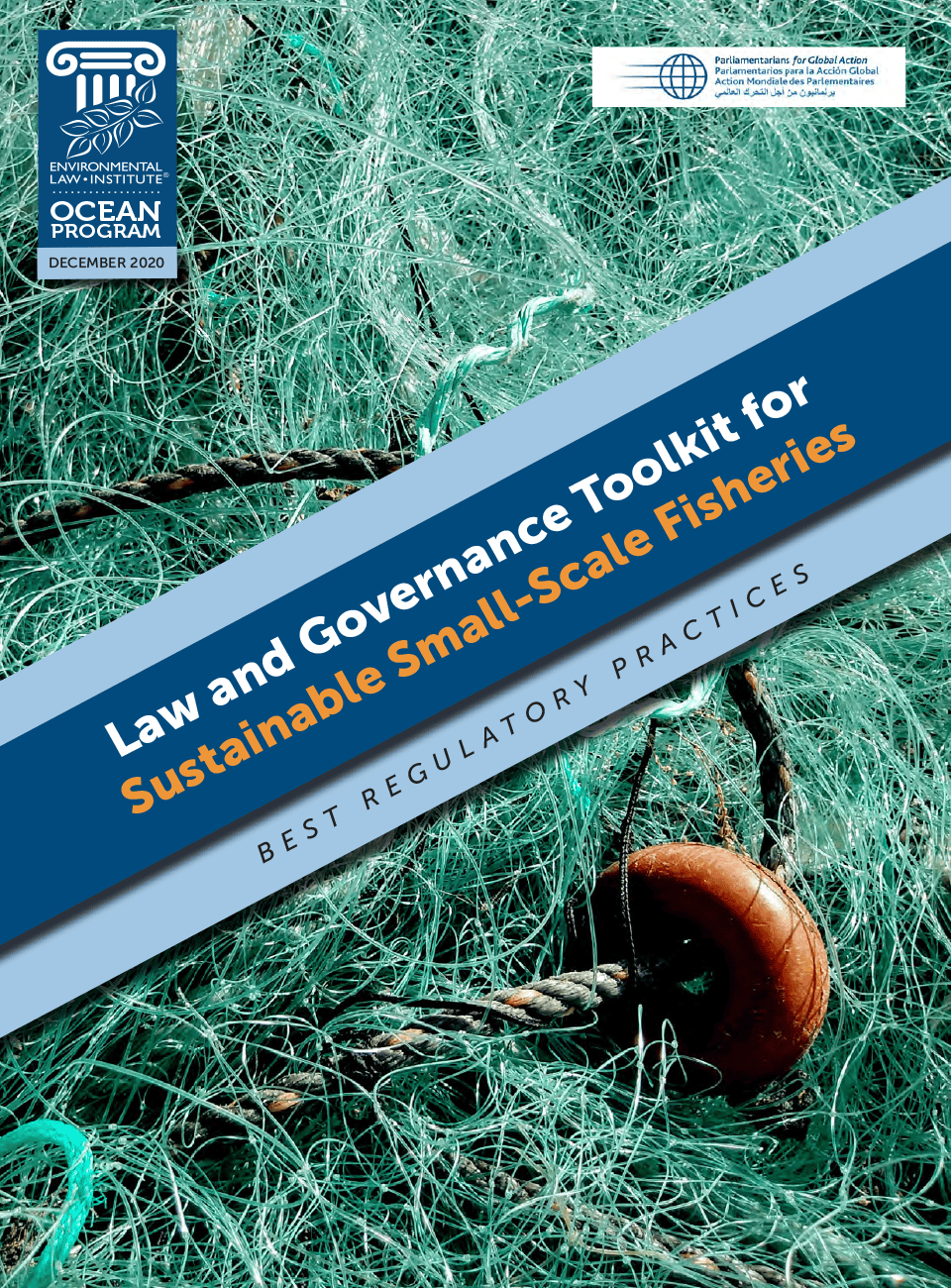
Law and Governance Toolkit for Sustainable Small-Scale Fisheries: Best Regulatory Practices
Description
PDF(s)
Additional Details




